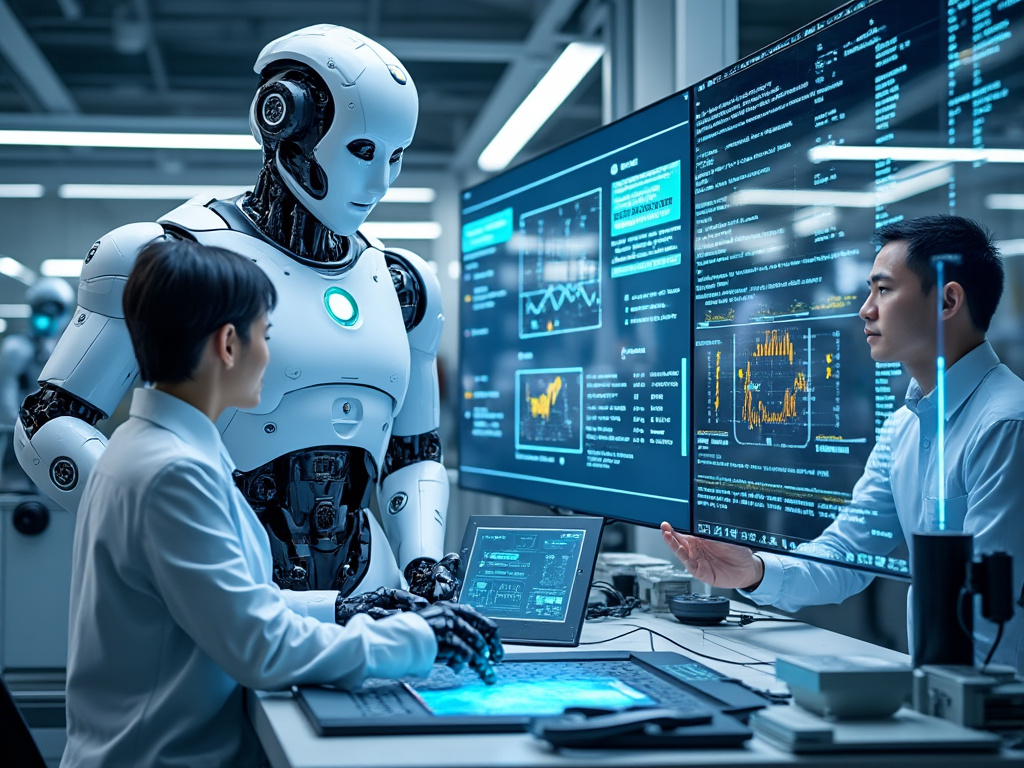
A Brave New World of Manufacturing
Imagine walking into a factory where the machines predict their own maintenance needs, robots work alongside humans to create products with unparalleled precision, and waste is reduced to nearly nothing. This isn’t a scene from a sci-fi movie; this is the world of manufacturing today, thanks to Artificial Intelligence (AI).
The AI-Driven Factory Floor
- Automation and Robotics
- AI has transformed factory floors into intelligent ecosystems where robots like those from Figure Robotics handle tasks with human-like precision.
- Statistics to Note: A 20% increase in production rates and up to 15% reduction in manufacturing waste.
- Quality Control with a Digital Eye
- Gone are the days of human error in quality checks. AI systems analyze products in real-time, detecting defects with up to 99% accuracy.
- Real-World Example: BMW uses AI for automated image recognition during quality checks to eliminate even the subtlest of defects.
- Predictive Maintenance: The Game Changer
- Rather than waiting for machines to fail, AI predicts when they will, allowing for maintenance before any disruption occurs, potentially saving up to 30% in costs.
- Insight: This not only saves money but also significantly reduces downtime, which is crucial in high-volume manufacturing settings.
- Sustainability Through AI
- AI optimizes energy use and helps in reducing the carbon footprint of manufacturing processes.
- Trend to Watch: AI-driven systems are now pivotal in achieving sustainability goals set by global standards.
Market Impact and Growth
- Economic Forecast: The AI in manufacturing market is projected to reach USD 695.16 billion by 2032, showcasing a CAGR of 37.3%.
- Competitive Advantage: Companies leveraging AI are not just surviving; they’re leading their industries by enhancing productivity and reducing operational costs.
Case Studies of AI in Action
- General Motors: Their collaboration with Autodesk for generative design has led to parts that are 40% lighter and 20% stronger, setting new benchmarks in automotive manufacturing.
- Siemens: Their integration of AI in industrial automation not only cuts costs but also helps in creating adaptive, smart manufacturing solutions.
Challenges and Ethical Considerations
- Workforce Transformation: While AI automates routine tasks, it necessitates a shift in workforce skills towards more strategic, creative roles.
- Ethical AI: As AI integrates deeper into manufacturing, ethical considerations like data privacy and the impact on employment must be addressed.
The Future Outlook
- Human-Robot Collaboration: The future is not about replacement but enhancement, where AI and human workers complement each other for better outcomes.
- Innovation: AI will continue to drive innovation, possibly leading to fully autonomous factories where humans oversee complex decision-making processes.
Conclusion: Embracing the AI Revolution
The integration of AI in manufacturing isn’t just about keeping up with technology; it’s about redefining what’s possible in production, quality, and sustainability. As we move forward, the synergy between AI and human ingenuity will continue to unlock new potentials, making manufacturing not just a sector of industry but a beacon of future innovation.




